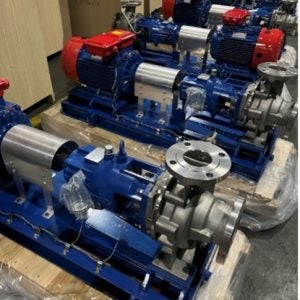Japan is turning to international experts for help with decommissioning its nuclear power plants. Kirill Komarov, first deputy director general for development and international business at Russian state nuclear corporation Rosatom said on 26 November that Rosatom is ready to offer Japan the entire spectrum of services and technologies in the back-end of nuclear fuel cycle.
He was speaking at a seminar on Russian back-end technologies, being held for the first time in Japan. "We are ready to help Japan solving an important set of issues: these are solutions for radwaste and used nuclear fuel management, decontamination and decommissioning of NPPs, as well as expediting clean-up of consequences at the Fukushima Daiichi plant," Komarov said.
He noted that Russia has accumulated vast experience in remediation of the Chernobyl accident on the basis of which it had established a scientific and engineering base and modern production facilities reated to thee problems.
“We are certain that Russian back-end technologies are also suitable for solving the problems Japan faces," he added.
Komarov recalled that Rosatom had excellent competence in damage nuclear fuel management, and had undertaken such projects not only in Russia but abroad, in particular, at the Paks nuclear plant in Hungary. Rosatom believes the biggest area for cooperation would be the decommissioning of nuclear power plants in Japan which are no longer considered suitable for further operation. "In this regard, we are ready to offer services of both Rosatom and especially of [its subsidiary] German company Nukem Technologies, which has implemented projects on decommissioning of nuclear power plants to a "green field" state," Komarov said.
Junichi Eguchi, a representative of Japan’s Agency for Natural Resources and Energy of the Ministry of Economy, Trade and Industry told the seminar that Japan was increasing its nuclear cooperation with Russia and was considering using Russian back-end technologies, Nuclear.Ru reported. He said Japan would continue using nuclear power but for its development the country "needs to overcome many problems and obstacles", in particular, to eliminate the consequences of the Fukushima-Daiichi accident and implement decommissioning measures. "The greatest problem is to remove used fuel from power units and used fuel pool, as well as reprocessing liquid radioactive waste," Eguchi noted, adding that Japan intended to "involve technical capabilities of different countries" to solve the available problems. "We hope Russian will assist us," he concluded.
The same day, France’s Areva and Hitachi-GE Nuclear Energy signed a memorandum of understanding to cooperate in the field of decommissioning and decontamination of boiling water reactors (BWR) in Japan. As part of this cooperation, Areva will participate in the preliminary studies for dismantling BWRs in Japan. The two companies will also investigate other opportunities related to decommissioning and decontamination operations for those reactors. In Japan, through its partnership with local company ATOX,Areva has set up joint-venture company ANADEC, which will provide operational support to partners. Areva has already been involved in several projects at the Fukushima plant.
Tokyo Electric Power Co (Tepco) also has ongoing co-operation with the UK’s Sellafield Ltd on the clean-up of Fukushima Daiichi. This has involved site visits and exchange of information between Sellafield and Tepco FDEC (Fukushima Daiichi Decontamination and Decommissioning Engineering Company). The mutual commitment between Sellafield Ltd and Tepco FDEC was formalised in a 2014 co-operation agreement. The agreement identifies four areas in which Tepco and Sellafield Ltd will cooperate: site management, environmental monitoring, radiation protection, project delivery and design engineering.
Team of international experts visits the Fukushima site in the aftermath of the accident (credit: IAEA)






